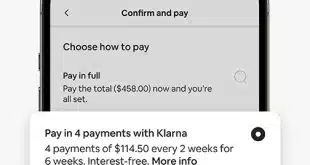In a move calculated to expand its business in e-commerce and mobile transactions, Visa Inc. on Wednesday said it will buy CyberSource Corp., an online gateway and merchant acquirer, for $2 billion in cash.
The deal, which is expected to close by Sept. 30, brings together the world’s largest payment card network and a 16-year-old company with deep expertise in e-commerce transaction processing and anti-fraud technology.
“We spent over a year thinking about this type of a transaction, and frankly we didn’t see any business we were interested in acquiring other than CyberSource,” said Joseph Saunders, Visa’s chief executive, in a conference call held early Wednesday to explain the deal to stock analysts. The combination is expected to benefit Visa by bolstering its position in the rapidly expanding e-commerce channel. Indeed, the deal will “drive more volume onto the core Visa products,” chiefly credit, debit, and prepaid cards, Gerry Sweeney, head of global e-commerce and authentication at Visa, tells Digital Transactions News.
It will also allow for tighter integration of emerging Visa services, such as its Rightcliq by Visa product, into merchants’ back offices, Sweeney says. Visa previewed Rightcliq in March as a service that acts as an online wallet, transaction-tracking, and comparison-shopping device for consumers. Visa will also be able to use CyberSource to help drive its fledgling mobile-payments initiative, as well, executives said in the conference call.
As mobile services mature and become an increasingly common way to access the Internet, “the role for gateway and fraud services will continue to proliferate,” said Oliver Jenkyn, global head of strategy and corporate development at Visa, told analysts. “A gateway is going to be required in some form.” And while some observers say the move signals a return by Visa into merchant acquiring, given that 31% of CyberSource’s revenues come from underwriting merchant accounts, Sweeney says the card network has no such plans.
Visa exited acquiring in 2005 when it sold its 50% stake in what was then called Vital Processing Services to Total System Services Inc. “To me, [the deal] is clearly going to freak out the merchant-acquiring community,” says Gwenn Bezard, research director at Aite Group LLC. “You’re competing with Visa.” In the conference call, Saunders said Visa will “change” CyberSource’s acquiring business into what he called a “referral” model in which Visa and CyberSource would send online merchants to client banks. “We think there’s a business model where we can work collaboratively with financial institutions to offer a bundle of services to merchants,” he noted.
While acquiring has played an increasingly important role at CyberSource, growing from 12% of revenue in 2004, its prominence in the company’s business makeup has declined in recent years. It accounted for fully 45% of revenues in 2007, for instance.
Still, Bezard argues Visa will end up competing for acquiring revenues, even if this is not its intended strategy in buying CyberSource. “I still think Visa, although aiming at differentiating its e-commerce offering against MasterCard, is ultimately brought to compete in merchant acquiring,” he notes in a follow-up e-mail message. “Merchant acquiring is going to be a collateral damage [for rival acquirers].”
CyberSource’s mainline business is providing a connection, or gateway, between online merchants’ checkout pages and back-end payment processors. It also helps merchants control fraud risk with technologies that screen for fraud and help manage functions like chargebacks. As a wholly owned subsidiary of Visa, it is expected to benefit by leveraging the card network’s extensive links to financial institutions in the U.S. and overseas.
“We’re very excited about what we can now do with our platform,” said Michael Walsh, chief executive at CyberSource, during the call with analysts. Visa is paying $26 per share for publicly held CyberSource, a premium of 34% over the company’s April 20 closing price. The $2 billion price represents a multiple of 7.5 times CyberSource’s 2009 revenues of $265 million. CyberSource earned $11 million in net income last year, little changed from 2008. It processed 2.5 billion transactions in 2009 for 295,000 businesses, including major clients such as Air France, British Airways, Home Depot, Microsoft, and Yahoo.
CyberSource was founded in 1994 as software.net, a Web-based software store that developed payments solutions so it could sell online. It spun off the payments business in 1997 as Internet Commerce Services Corp., which later changed its name to CyberSource. In 2007, CyberSource acquired a major rival gateway, Authorize.net, for $565 million in stock and cash. That deal gave it entrée to tens of thousand of small merchants and handed it an active network of independent sales organizations and other resellers.





